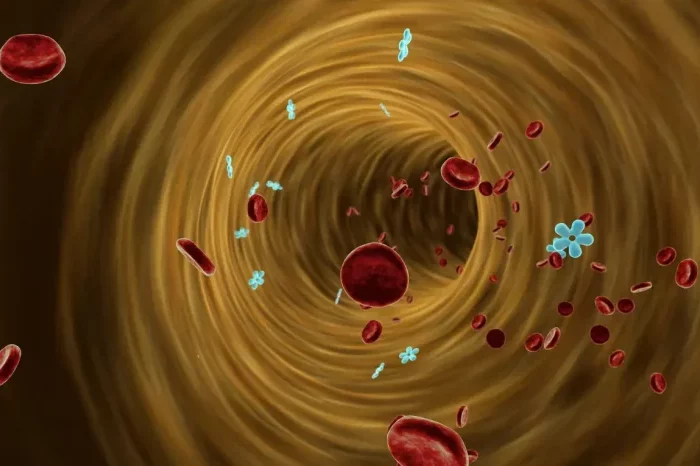Insulin resistance, a condition in which the body’s cells become less responsive to insulin, plays a pivotal role in the pathogenesis of type 2 diabetes mellitus (T2DM) and is a significant risk factor for cardiovascular disease (CVD) and other metabolic disorders. With the prevalence of insulin resistance steadily rising globally, it is imperative for healthcare professionals to understand its underlying mechanisms and implement effective strategies for its management. In this article, we will delve into the complexities of insulin resistance, explore its impact on health, and discuss evidence-based approaches to its management.
Understanding Insulin Resistance
Insulin, a hormone secreted by the pancreas, plays a crucial role in regulating blood glucose levels by facilitating the uptake of glucose into cells. In individuals with insulin resistance, however, cells become less responsive to the action of insulin, leading to impaired glucose uptake and elevated blood glucose levels. This phenomenon triggers compensatory mechanisms in the body, including increased insulin secretion by the pancreas, in an attempt to overcome the resistance. Over time, this persistent hyperinsulinemia can contribute to beta-cell dysfunction and the development of T2DM.
Several factors contribute to the development of insulin resistance, including genetic predisposition, sedentary lifestyle, obesity, dietary factors, and chronic inflammation. Adipose tissue, particularly visceral adiposity, plays a critical role in insulin resistance by releasing pro-inflammatory cytokines and adipokines that interfere with insulin signaling pathways. Moreover, ectopic deposition of fat in organs such as the liver and skeletal muscle can impair insulin sensitivity and contribute to metabolic dysfunction.
Health Implications of Insulin Resistance
Insulin resistance is not merely a precursor to T2DM but also a significant risk factor for a myriad of health complications, including CVD, non-alcoholic fatty liver disease (NAFLD), polycystic ovary syndrome (PCOS), and certain types of cancer. Chronic hyperinsulinemia associated with insulin resistance promotes atherogenic dyslipidemia, endothelial dysfunction, and systemic inflammation, all of which contribute to the development of atherosclerosis and CVD.
Moreover, insulin resistance is closely linked to dysregulation of lipid metabolism, leading to increased production of triglyceride-rich lipoproteins and decreased clearance of circulating lipids. This dyslipidemia pattern, characterized by elevated triglycerides, low high-density lipoprotein cholesterol (HDL-C), and small, dense low-density lipoprotein particles, is commonly observed in individuals with insulin resistance and confers an increased risk of cardiovascular events.
Furthermore, insulin resistance is a key pathogenic factor in the development of NAFLD, a spectrum of liver disorders ranging from simple steatosis to non-alcoholic steatohepatitis (NASH) and cirrhosis. Insulin resistance promotes hepatic lipid accumulation by upregulating de novo lipogenesis and impairing mitochondrial fatty acid oxidation, predisposing individuals to hepatic inflammation and fibrosis.
Strategies for Managing Insulin Resistance
Given the multifactorial nature of insulin resistance, its management requires a comprehensive approach targeting various underlying mechanisms. Lifestyle modifications, including dietary interventions, increased physical activity, and weight loss, constitute the cornerstone of therapy for insulin resistance and T2DM. The following strategies are recommended for the management of insulin resistance:
- Healthy Diet: Adopting a diet rich in whole grains, fruits, vegetables, lean proteins, and healthy fats can improve insulin sensitivity and metabolic health. Emphasizing foods with a low glycemic index and limiting intake of refined carbohydrates and sugar-sweetened beverages can help stabilize blood glucose levels and reduce the risk of insulin resistance.
- Regular Exercise: Engaging in regular physical activity, including aerobic exercise, resistance training, and flexibility exercises, can enhance insulin sensitivity and promote weight loss. Exercise stimulates glucose uptake by skeletal muscle and improves mitochondrial function, thereby counteracting insulin resistance.
- Weight Management: Achieving and maintaining a healthy body weight is essential for reducing insulin resistance and improving metabolic parameters. Even modest weight loss (5-10% of initial body weight) has been shown to significantly improve insulin sensitivity and glycemic control in individuals with insulin resistance and T2DM.
- Pharmacotherapy: In addition to lifestyle interventions, pharmacotherapy may be necessary to optimize glycemic control and reduce cardiovascular risk in individuals with insulin resistance and T2DM. Oral antidiabetic agents, such as metformin, thiazolidinediones, and sodium-glucose cotransporter-2 inhibitors, are commonly prescribed to improve insulin sensitivity and glucose metabolism.
- Insulin Therapy: In advanced cases of insulin resistance or T2DM, insulin therapy may be required to achieve glycemic targets and prevent complications. Insulin sensitizers, such as long-acting insulin analogs and insulin sensitizing agents, can help overcome insulin resistance and improve glucose utilization in peripheral tissues.
- Management of Comorbidities: Given the strong association between insulin resistance and CVD, it is essential to address cardiovascular risk factors, such as hypertension, dyslipidemia, and smoking, in individuals with insulin resistance. Aggressive management of these comorbidities can reduce the risk of cardiovascular events and improve long-term outcomes.
- Behavioral Interventions: Incorporating behavioral interventions, such as cognitive-behavioral therapy, motivational interviewing, and support groups, can enhance adherence to lifestyle modifications and promote sustainable behavior change in individuals with insulin resistance.
Conclusion
Insulin resistance is a complex metabolic disorder with far-reaching implications for health and well-being. By understanding its underlying mechanisms and implementing comprehensive strategies for its management, healthcare professionals can help mitigate the risk of T2DM, CVD, and other metabolic complications associated with insulin resistance. Empowering individuals with knowledge and support to make healthy lifestyle choices is paramount in the prevention and management of insulin resistance. Through collaborative efforts between healthcare providers and patients, we can strive towards a healthier future with improved metabolic health and reduced disease burden.
Related topics:
The Best Medicine for Insulin Resistance: An In-Depth Review



























